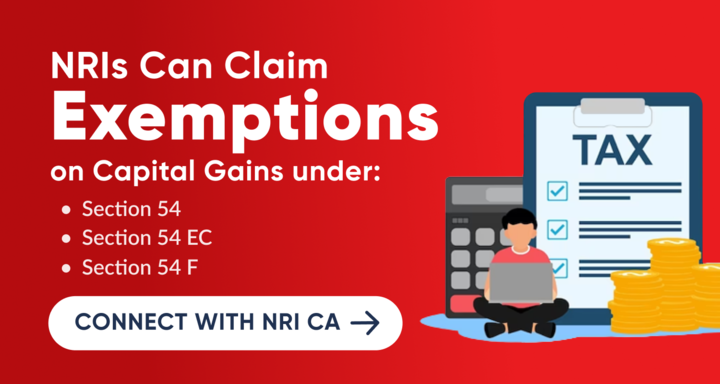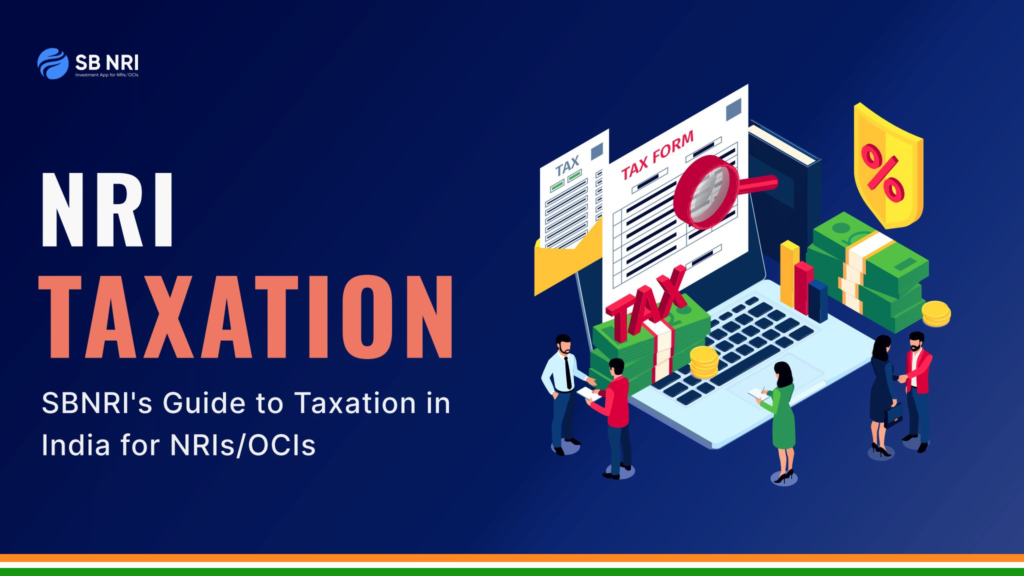
The Union Budget 2024 brought significant changes to the tax rates and applicability, particularly in capital gains. These changes are set to affect a wide range of investors including residents, Non-Resident Indian(NRI), and Overseas Citizen of India(OCI) property owners, making it crucial to understand the new rules and how they might impact your financial planning. In this blog, learn how the new capital gain on house property and the comparison between indexation and non-indexation benefits for real estate sellers.
Increased Long-Term Capital Gains (LTCG) Limit after Budget 2024
One of the most notable changes is the increase in the Long-Term Capital Gains (LTCG) exemption limit. Previously set at Rs 1 lakh, the new limit has been raised to Rs 1.25 lakh. This change provides a higher threshold for long-term capital gains, allowing investors to benefit from a larger exemption before any tax is levied. This adjustment is expected to ease the tax burden on long-term investors and encourage long-term investment in equities and other assets.
Also read: What Are the Changes in Capital Gain Tax After Budget 2024?
Changes to Capital Gain on House Property and Real Estate
The government has removed the indexation benefit from LTCG effective from the Budget 2024. The long-term capital gains (LTCG) tax on real estate was previously 20% with indexation benefits. While the LTCG rate has been reduced to 12.5%, the indexation benefits have been removed. The removal of indexation for capital gain on house property will likely increase the taxation liability for homeowners looking to sell their property as their realized capital gain will be much higher due to the absence of indexation benefits.
Also read: Revised Income Tax Slabs for FY 2024-25
How will the Capital Gain on House Property affect you?
The proposed change aims to eliminate the indexation benefit for properties acquired on or after April 1, 2001, which previously allowed taxpayers to adjust the purchase price for inflation. This adjustment helped reduce their taxable capital gains, effectively lowering their overall tax obligation.
Also read: Budget 2024: Everything NRIs need to know about new tax rates, deductions and more
Comparison of Capital Gain on House Property with Indexation and Without Indexation
Here’s a comparison of how the LTCG will work for real estate owners when they sell their real estate property after the abolition of indexation benefits. Let’s take two examples to understand it better.
Case 1: Property Bought at Rs 30 Lakhs on April 1, 2003
| Particulars | Old Rules (With Indexation) | New Rules (Without Indexation) |
| Purchase Cost | 30,00,000 | 30,00,000 |
| Inflation Adjusted Cost of Acquisition | 95,77,982 | Not applicable as no indexation benefit is allowed |
| Selling Price | 1,50,00,000 | 1,50,00,000 |
| Capital Gains | 54,22,018 | 1,20,00,000 |
| Tax Rate | 20% | 12.5% |
| Tax Liability | 10,84,404 | 15,00,000 |
Taking the above example, you can see that the tax liability under the old rule where indexation benefit was allowed and LTCG tax was levied at 20% resulted only in a tax liability of Rs 10,84,404. While under the new rules, the assessee’s tax liability will be Rs 15,00,000 which is significantly higher.
Now let’s take a look at another case.
Case 2: Property Bought at Rs 80 Lakhs on April 1, 2018
| Particulars | Old Rules (With Indexation) | New Rules (Without Indexation) |
| Purchase Cost | 80,00,000 | 80,00,000 |
| Inflation Adjusted Cost of Acquisition | 99,42,857 | Not applicable as no indexation benefit is allowed |
| Selling Price | 1,50,00,000 | 1,50,00,000 |
| Capital Gains | 50,57,143 | 70,00,000 |
| Tax Rate | 20% | 12.5% |
| Tax Liability | 10,11,429 | 8,75,000 |
Taking the above example, you can see that the tax liability under the new rule with the abolition of indexation benefit resulted in a tax liability of Rs 8,75,000 significantly lower than that of the case of the old rule where indexation benefit was allowed and LTCG tax was levied at 20%.
Analysis of Change in LTCG Rule with Removal of Indexation
From the above example and comparison, it is visible that the removal of indexation isn’t completely negative for all investors. The new rate of capital gain taxes with the removal of indexation may benefit some users where their tax liability will be reduced. It may benefit users who have bought house property in recent years and cannot maximize indexation benefits.
What is Section 54F of the Income Tax Act?

Section 54F allows individuals to claim tax exemptions on long-term capital gains if they reinvest the proceeds in a residential property. This can be particularly beneficial for those selling assets like residential property. Lots of NRIs own various assets in India and they can often benefit from long-term capital gains from non-residential properties. Section 54F helps them save on taxes and encourages property investment.
Also read: Capital Gains Bonds for Tax Exemption under Section 54EC
When do Budget Tax Changes Take Effect?
The changes in tax rates and other tax-related provisions announced in the Union Budget typically take effect from the start of the new financial year, which is April 1st. This means that the new tax rates, revised deductions, and other changes will apply to the income earned from April 1st of the current year to March 31st of the following year. For instance, the changes announced in the Budget 2024 will be applicable for the financial year 2024-25, and individuals will see these changes reflected when filing their income tax returns in the assessment year 2025-26. For capital gains, the new rules will start effective from the date of the Budget 2024 announcement, i.e. 23 July 2024.
Wrapping Up
The Budget 2024 has introduced significant changes to the capital gains tax regime, affecting a wide range of investors and property owners. The increase in the LTCG exemption limit and the removal of the indexation benefit are pivotal changes that require careful consideration. As demonstrated through the examples, the impact of these changes can vary widely depending on the specifics of each investment.
For long-term investors, the higher exemption limit provides additional relief, while the removal of indexation benefits could lead to higher tax liabilities for properties held over long periods. However, the new rules may benefit those with more recent acquisitions, potentially reducing their overall tax burden.
Access SBNRI’s Exclusive NRI Taxation Guide

NRIs and OCIs can now access SBNRI’s exclusive NRI Taxation Guide covering in-depth information about DTAA, Gift Tax, Rental Income Tax, ITR Filing, Types of ITR Forms for NRIs, Capital Gain Tax, Income Tax, and more. The report will help you understand India taxation on mutual funds, other asset classes and how you can comply with the regulations.
Access NRI Taxation Guide here
Calculate your TDS Refund with SBNRI’s TDS Refund Calculator
A TDS refund is the process of reclaiming the excess tax deducted at source by the payer if the actual tax liability of the taxpayer is lower than the TDS deducted. This situation typically arises when the income tax calculated on the total income is less than the TDS already deducted. To claim a TDS refund, taxpayers need to file an income tax return (ITR). The Income Tax Department processes the ITR and verifies the details. If the tax department finds that the TDS paid is more than the actual tax liability, the excess amount is refunded to the taxpayer.
You can easily find out how much tax refund you can get by calculating your TDS Refund from this TDS Refund Calculator.
Connect with SBNRI NRI Tax Expert CA Today!

Due to a complicated tax system and recurrent amendments, understanding tax laws can be confusing and NRIs may be subject to additional fees or miss claiming deductions and other benefits. At SBNRI, we understand this struggle. You can download SBNRI App to connect with our NRI Tax Experts to know more about new TDS/ TCS rules for NRIs. You will also get end-to-end assistance related to NRI tax filing.
SBNRI will also help you get a lower TDS Certificate. You can also click on the button below to ask any questions. Visit our blog and YouTube Channel for more details.
FAQs
What is the new Long Term Capital Gains (LTCG) tax rate?
The LTCG tax rate has been revised to 12.5%, and the LTCG limit has been increased to Rs 1.25 lakh per year from Rs 1 lakh.
What are the new capital gains tax rates introduced in Budget 2024?
The long-term capital gains (LTCG) tax rate has been increased from 10% to 12.5%, and the exemption limit for LTCG has been raised from Rs 1 lakh to Rs 1.25 lakh per year.
Who will be most affected by the changes in capital gains tax?
Individuals earning more than Rs 1.25 lakh per year in long-term capital gains will be most affected by the new tax rate, as they will now pay a higher rate of 12.5% compared to the previous 10%.
When do the new capital gains tax changes take effect?
The new changes to capital gains tax will take effect from April 1, 2024.
How will the new capital gains tax affect small investors?
Small investors with annual long-term capital gains up to Rs 1.25 lakh will not be affected by the new tax rate, as they will still be within the exempted limit.
What is the impact of the new capital gains tax on high-income earners?
High-income earners with substantial long-term capital gains will face higher tax liabilities due to the increased LTCG tax rate of 12.5%.
How do the changes in capital gains tax align with the government’s fiscal policies?
The changes in capital gains tax are part of the government’s efforts to increase tax revenues and support fiscal consolidation while providing targeted benefits to middle-income taxpayers and startups.



